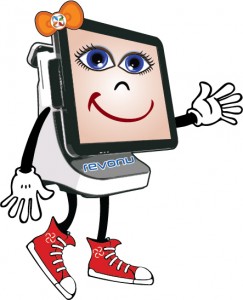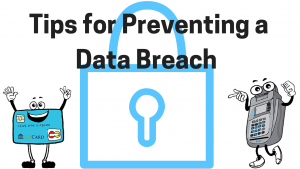It’s Here, What You’ve Been Waiting For; REVONU POS for Windows!

REVONU POS for Windows

REVONU POS for Windows

As the information age has continued to create unprecedented breakthroughs in the tech industry, a number of products have become increasingly obsolete. Innovations in design, market strategy and consumer preference have all played a large role in the direction of best practices for both buyers and sellers of a number of technological goods. Prime examples of this are Point of Sale systems in the Merchant Service industry, which have gone through drastic changes from dial-up, stand-alone devices to web-integrated mobile solutions. As these changes have occurred, processing payments has become easier than ever, and it’s important for business owners to know how and why Tablet and Cloud POS systems are the better option moving forward.
For business owners, choosing a POS system that will run smoothly and reflect your method of business is as important as any other decision you make when setting up shop. Your POS system will be the operating location for every transaction you make with your customers, and being knowledgeable of the best tools available are key to your business’ growth.
Traditional, or “Legacy” POS systems are the original POS system, installed on-site at your business as a stationary device. The “on-site” method is a recurring theme with Legacy POS systems, which can prove to be problematic down the road for a business owner that is constantly on the go or seeking versatility. All maintenance is handled on location with Legacy POS systems, meaning repairs and installs must always be done during a scheduled time at your business location. POS configuration and set-up must also be done on site. Lastly, a number of gift and loyalty programs that customers seek must be purchased as separate software, which can prove to be expensive and time consuming to install. Overall, the Legacy POS system functions as an outdated tool for processing transactions and may hurt your business more than it helps.
Tablet and Cloud POS systems are a bit more flexible in their functionality, which is what makes them so attractive to business owners today. Many of these systems are obtainable through monthly payment plans, which can make them a bit more affordable for new business owners that may not be able to fork over a lump sum. Also, Tablet and Cloud POS systems have their software, data storage and analytics hosted via online servers (the cloud), which provide more security and convenience in the event that your POS system malfunctions or faces fraudulent activity. These solutions are also notably more accessible, with versatility as a mobile solution for business owners that may have moving businesses (such as food trucks, kiosks and vendors). You are also given the option to view your business data from any device with Internet access, so you can keep tabs on business activity even if you’re not there. In terms of maintenance, POS updates don’t necessarily require in-store activity.
With the wide range of Tablet and Cloud POS systems available in today’s market, it’s easier than ever for you to find a solution that fits your business needs. CoCard has a large inventory of solutions that can match exactly what you’re looking for. Don’t get left behind, call us today for more information about options that will allow you to process transactions more efficiently.
Read MoreRead More
Are you wondering about the benefits of accepting credit cards for your business? Cash and check are acceptable forms of payment, but accepting credit cards adds the extra touch of legitimacy to your company. Take a look at the ways in which accepting credit cards can help your business.
These are just a few ways in which accepting credit cards can make your business more profitable, and really, who doesn’t want that? Give COCARD a call today, we would love to help you find the perfect processing solution for your business! For more information about credit card processing, point of sale solutions and more call 1-800-317-1819 or email at info@cocard.info.
Read MoreRead More

When you think about data breaches, your mind probably jumps to the highly publicized incidents of companies like Target and Home Depot. Small business might think they don’t need to take security measures–but that’s not the case. Small business are as susceptible to data breaches as large corporations, and may actually be at greater risk.
Stephen Cobb, a senior security researcher at ESET, says that hackers like to target small businesses because they have more digital assets than a single customer, and not as many security measures put into place as a large enterprise. According to QSR magazine, small businesses like restaurants, are data-thief magnets because they process an abundance of credit cards and often use POS equipment.
1. Be Proactive
2. Make sure your credit card processing network is secure
3. Hold your employees accountable
If you would like more information on how to update your POS system and how to be more secure, including switching to EMV compliant technology, contact us at 800-317-1819!
Read MoreRead MoreREVONU POS is making a huge impact on the POS community, and to talk about why, we asked Julie Nelson, owner of Julie’s Treasures in Minnesota, a retail consignment store, what she thinks about her new REVONU POS system and COCARD.
COCARD: What made you choose COCARD for your payment processing?
Julie: COCARD was recommended to me by the previous owner.
COCARD: Was the previous owner already using REVONU?
Julie: No, he didn’t have a POS system to run the business. But I definitely wanted to utilize one. The previous owner mentioned that COCARD had POS systems available and I really liked REVONU.
COCARD: So it seems like REVONU has made your business easier to manage! Could you give me some examples as to how REVONU has improved the operation of your business?
Julie: REVONU has made a positive difference! After getting REVONU, it has been easier to keep track of sales as it can sometimes be difficult to keep track of consignors. We also have two different shipping services that are out of the office, so we rely on REVONU to keep those organized. It is very important that we keep track of who we are selling to and who to pay!
COCARD: Would you say REVONU does a good job at catering to a retail business, such as Julie’s Treasures?
Julie: Yes
COCARD: Is it relatively easy for you to keep your inventory organized using REVONU?
Julie: Yes
COCARD: If you could see one feature be added/changed to REVONU what would that be?
Julie: Honestly, I haven’t encountered any issues!
COCARD: What is your favorite aspect of REVONU?
Julie: My favorite aspects are the sales tracking and the back office management options as well has being able to get support for REVONU and my merchant services account in one place with one call!
COCARD: Thank you Julie for taking the time to speak with us today!
Is REVONU POS right for your business? Give us a call to set up a demo, we love to show it off! 800-318-1819
Read MoreRead More

A few short years ago, QR (Quick Response) codes seemed poised to reach smartphone levels of popularity. Advertisers, merchants and consumers had various reasons to be excited about this technology’s potential. In perfect application, QR drives traffic to websites, collects or processes simple, quick in-store or online payments or provides product info in a flash.
Despite its potential, QR has mostly faded from commercial limelight—codes are often present, but not visible.
Issues with QR codes as a tool for commerce are obvious. It’s clunky; users must download an app to scan the code, manually scan the code and then wait for whatever is linked to the code to display. Considering the information a QR code will provide is not always—or even often—given, it makes sense that consumers would skip scanning altogether.
QR shouldn’t be written off just yet, but repurposed. Here’s a look at some recent QR projects breathing new life into this tech:
Virtual Reality.
Google Cardboard, aka the working-man’s Oculus Rift, doesn’t just save babies’ lives (seriously!) Once you scan the QR code on the side of the viewer, insert your phone for an immersive, HD experience of locations from Stonehenge and the Palace of Versailles, to the Moon! Developers and virtual reality enthusiasts are constantly updating the app with new locations and experiences.
In this application, the QR code allows you to quickly sync the phone and the app.
In Memoriam
QR is reaching wider audiences as an educational tool. Graveyards, historical sites and museums are just some examples of organizations using QR code technology. Integrating QR codes with headstones provides a unique way to preserve biographical information for future generations. QR codes have been added to some museums, giving patrons more background on an exhibit. Other uses include providing audio tours and translation options.
Lost Pets
Losing a pet can be devastating and phone pole photos only reach a limited radius. QR codes are being used to simplify finding a lost pet. Q-Tag is a GPS-based QR code system where each pet has a customized profile. If they’re lost, a person who finds them can scan their code with their phone to pull up the owner’s contact details.
Saving Lives
In the medical field, every second matters. QR is being used to convey a patient’s important medical history to paramedics, even if they are unconscious. My QR Life Codes creates a personalized QR code applied bracelets or cards.
Up Next: In our ever-evolving technology landscape new ways to interact with our world are constantly emerging. QR codes are being applied in novel ways and NFC (Near Field Communication), aka Apple Pay, Google Wallet, Samsung Pay and Android Pay, is the latest development in payment processing. NFC excels where QR failed: it is truly instant and convenient. Widespread consumer adoption is making slow—but steady!—progress. Most new phones come pre-installed with NFC capabilities and the EMV Compliance Mandate means an increase in EMV cards, likely encouraging the upward trend.
Visit our education center to learn more about EMV and the future of payment processing
Read MoreRead More